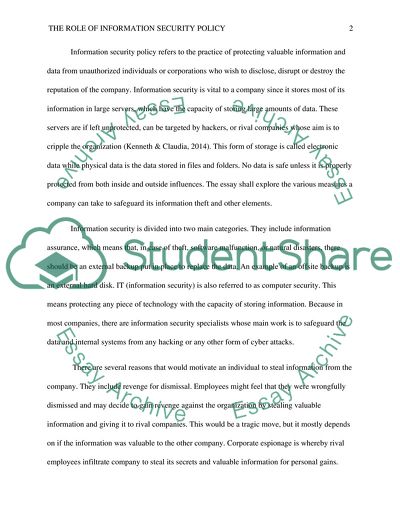Cite this document
(The Role of Information Security Policy Coursework Example | Topics and Well Written Essays - 1250 words, n.d.)
The Role of Information Security Policy Coursework Example | Topics and Well Written Essays - 1250 words. https://studentshare.org/information-technology/1818956-the-role-of-information-security-policy
The Role of Information Security Policy Coursework Example | Topics and Well Written Essays - 1250 words. https://studentshare.org/information-technology/1818956-the-role-of-information-security-policy
(The Role of Information Security Policy Coursework Example | Topics and Well Written Essays - 1250 Words)
The Role of Information Security Policy Coursework Example | Topics and Well Written Essays - 1250 Words. https://studentshare.org/information-technology/1818956-the-role-of-information-security-policy.
The Role of Information Security Policy Coursework Example | Topics and Well Written Essays - 1250 Words. https://studentshare.org/information-technology/1818956-the-role-of-information-security-policy.
“The Role of Information Security Policy Coursework Example | Topics and Well Written Essays - 1250 Words”. https://studentshare.org/information-technology/1818956-the-role-of-information-security-policy.


